Netflix’s ‘The Witcher: Blood Origin’ Executive Producer Lauren Hissrich Reveals Prequel Series To Introduce Black Elf As Ciri’s Ancestor
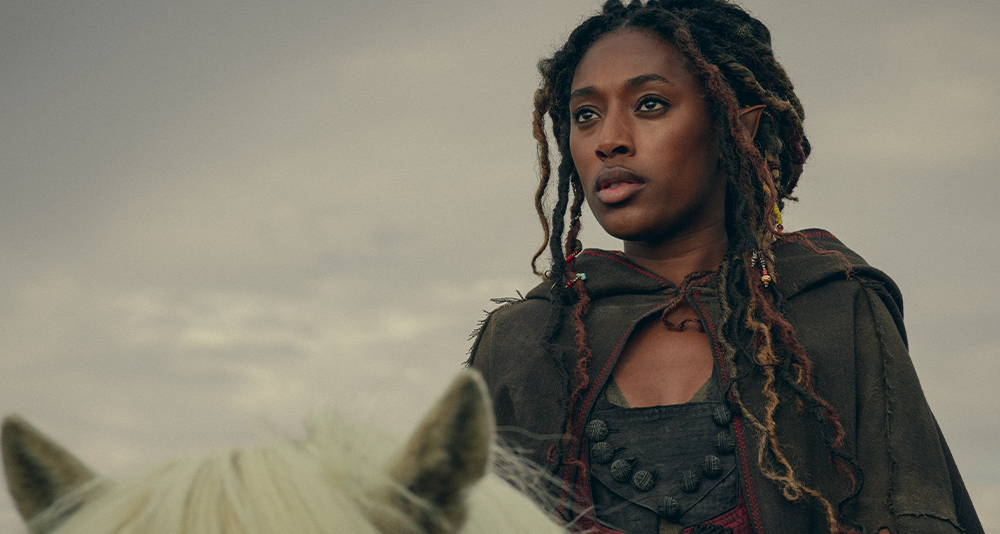
At this point, it feels like Netflix is outright addicted to altering any given property they may be unlucky to get their hands on – and the latest victim of their unchecked habit, for the second time, is The Witcher.
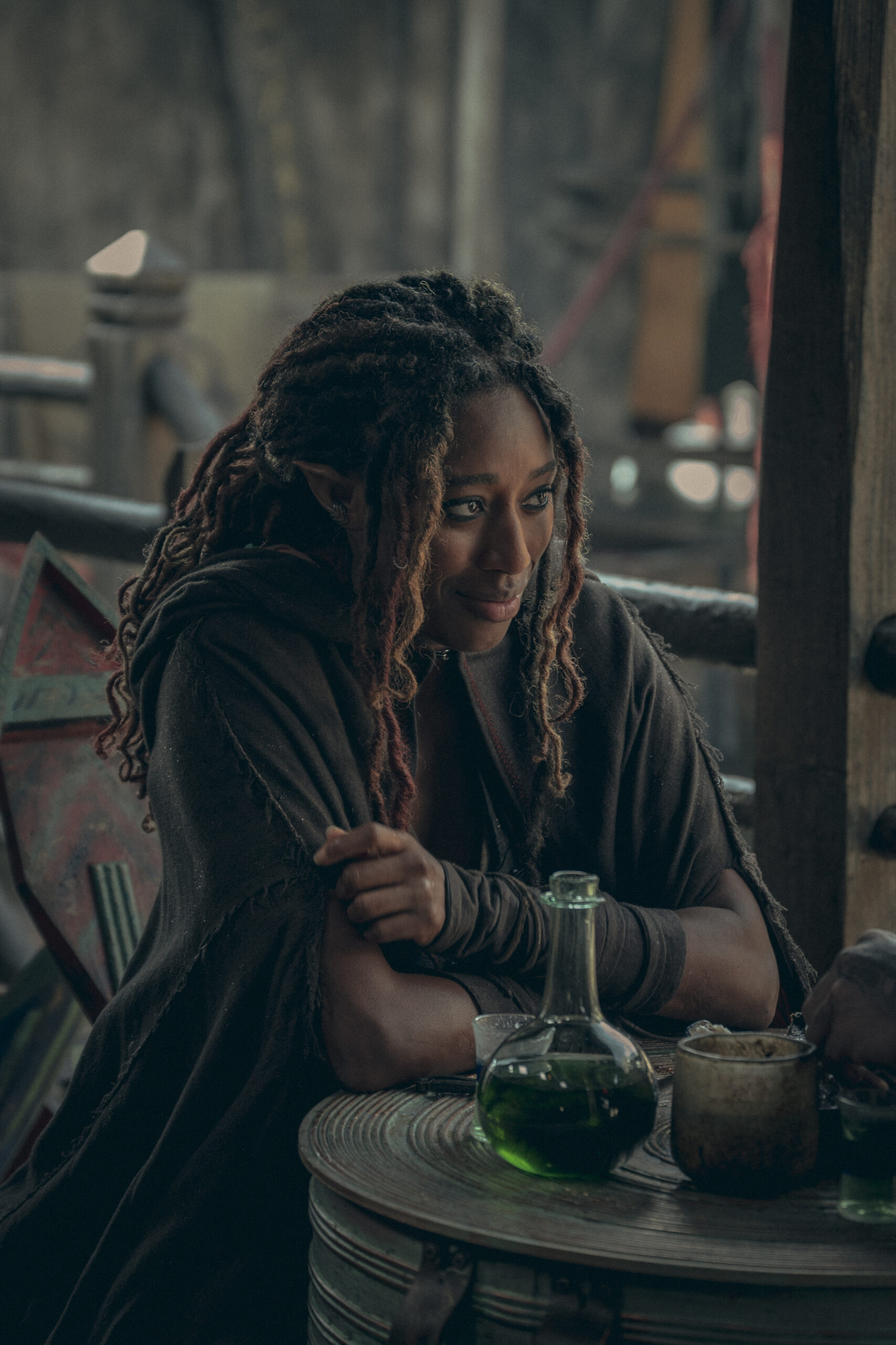
Sophia Brown as Éile in The Witcher: Blood Origin (2022) via Netflix
Specifically, as per The Witcher showrunner and The Witcher: Blood Origin executive producer Lauren Hissrich, the streaming service will be using the latter prequel series to introduce a black elf as Ciri’s earliest recorded ancestor.

Ciri (Freya Allan) steadies herself in The Witcher Season 2 Episode 3 “What Is Lost” (2021) via Netflix
This change to the series’ lore was first revealed by Hissrich during a recent interview with Polish entertainment news outlet Naekranie.pl given as part of Blood Origin‘s European press day.
In light of the fact that the prequel will be a one-season outing, interviewer Dawid Muszyński inquired as to whether was “any room for [the series’] characters to appear in different dimensions”, to which the EP explained, “It was written as a close ended series.”
RELATED: Netflix’s ‘The Witcher’ Fans Launch Petition To Keep Henry Cavill, Replace Writers Instead
“It was written as ‘This is a hello’, ‘This is a good-bye’, and it’s just going to give you a historical backdrop for the Conjunction of the Spheres (the in-universe event which resulted in the appearance of monsters across the series’ World),” she confirmed.
However, contrary to the initial tone of her response, Hissrich then recalled, “one of the things that we discovered is obviously there are some great tie-ins that we can have.”
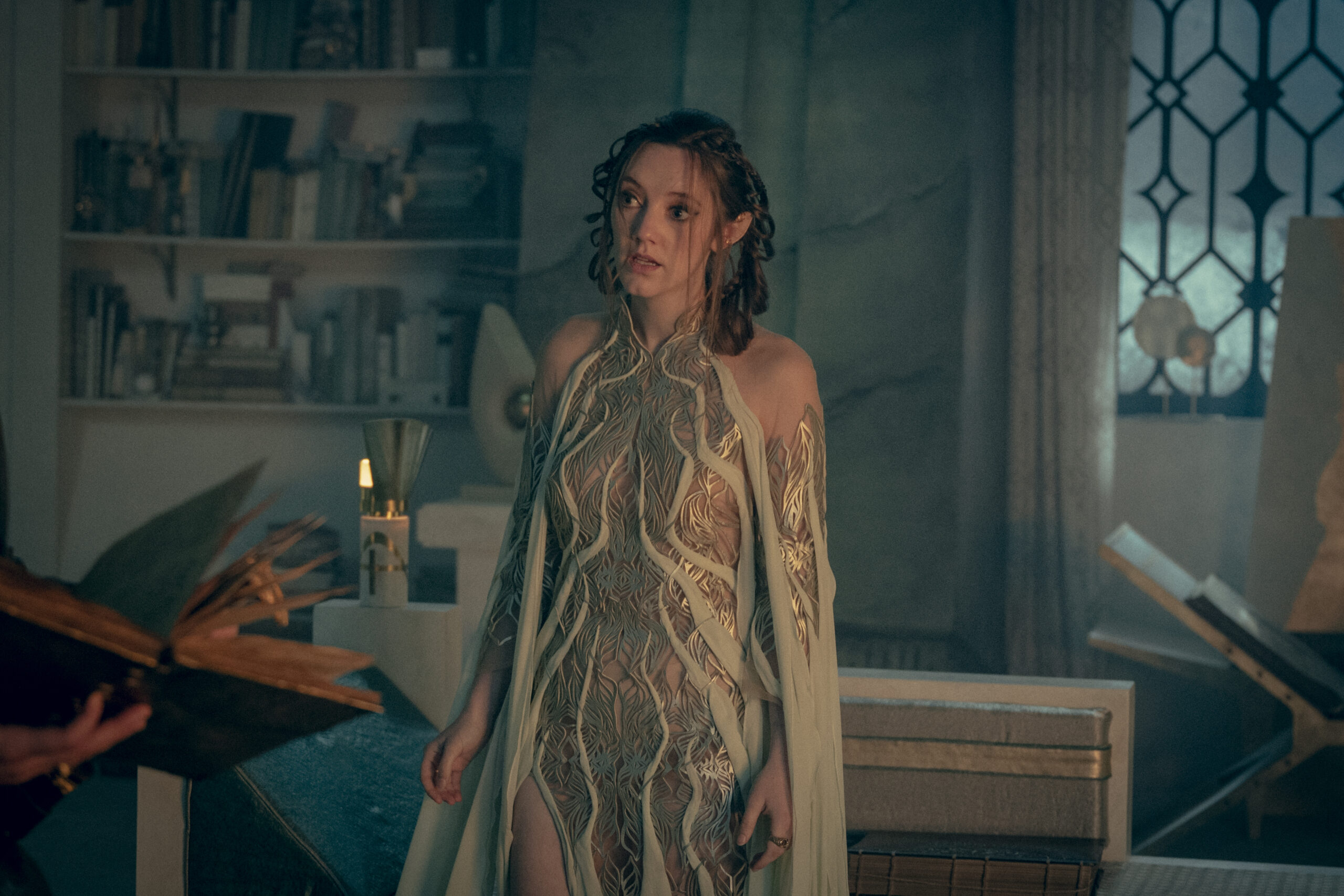
Mirren Mack as Merwyn in The Witcher: Blood Origin (2022) via Netflix
“Avallac’h, Eredin, these are characters that any Witcher fan knows are going to come back much later in the saga,” she said.
“We get to actually meet them when they’re a little more naive, when they haven’t had all of the experiences that have hardened them or turned them into those characters that we know,” added Hissrich. “So as soon as [Blood Origin creator and showrunner] Declan de Barra pitched me [the idea] of including those characters, we knew those were going to be characters that come back.”

Michelle Yeoh as Scian in The Witcher: Blood Origin (2022) via Netflix
RELATED: CD Projekt Red Announces ‘The Witcher’ Remake, Says It Will Be A “Modern Reimagining”
To this end, Hissrich then let it slip that, “What I will say though, is yeah, you’re absolutely right. As a fan, for instance, Éile [a Blood Origins exclusive character portrayed by actress Sophia Brown] is pregnant at the end and we know that’s part of Ithlinne’s prophecy that there is a seed in her that will eventually lead to someone who’s important in The Witcher world.
“So as someone who, for instance, on The Witcher side, follows Ciri and all of her– the origin of her genes and her blood,” she asserted, “it’s like, ‘I kinda wanna know where that character is gonna go, I wanna know if those two things are gonna crash into each other at some point.'”

Sophia Brown as Éile and Laurence O’Fuarain as Fjall in The Witcher: Blood Origin (2022) via Netflix
“So I don’t know is the real answer,” the EP concluded. “I think there’s always opportunities to bring characters back and if it works in our story and we get the opportunity and fans love it, absolutely.”
Though its reveal was rather unceremonious, this introduction of Éile into Ciri’s bloodline presents a significant change to Andrzej Sapkowski’s original lore.
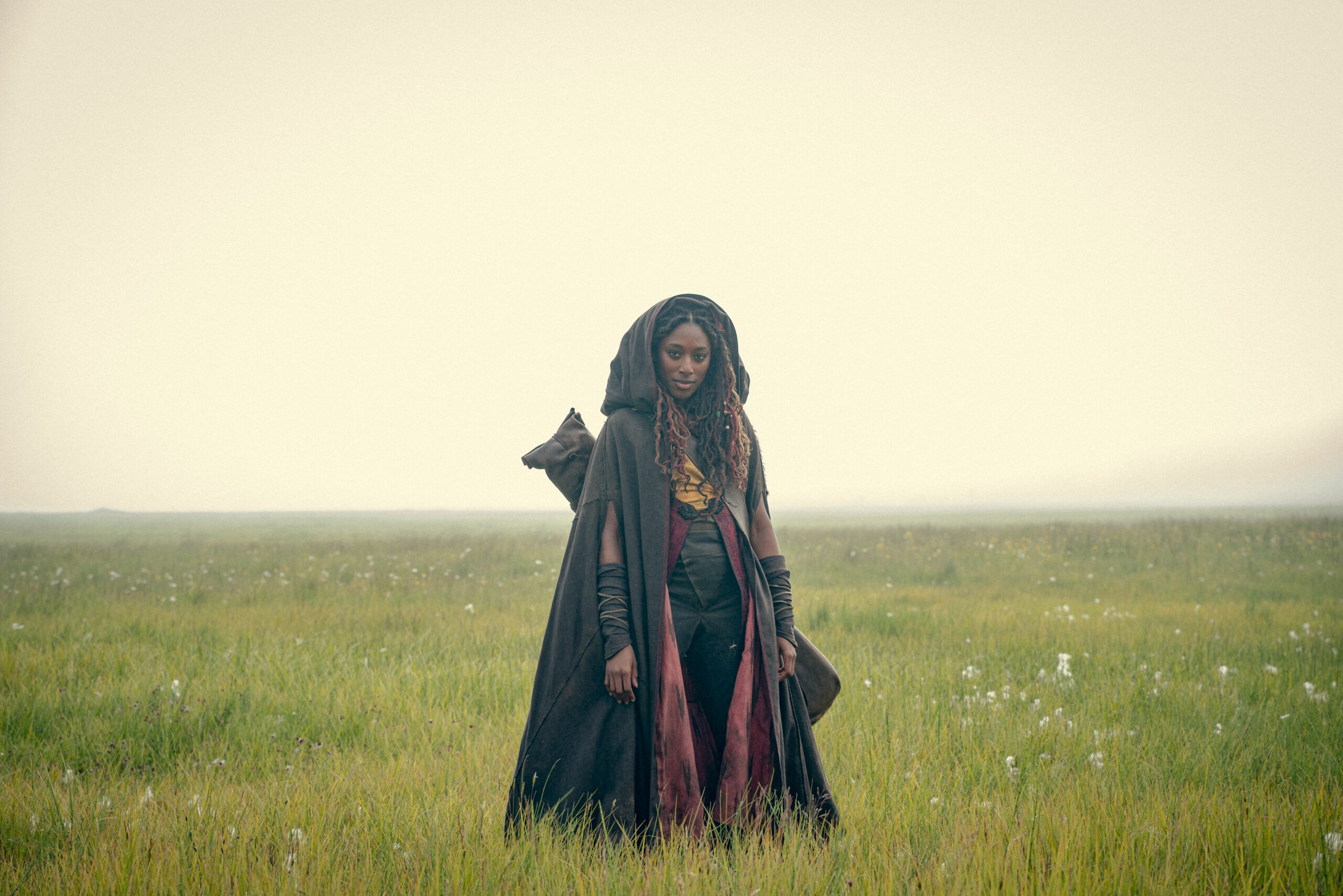
Sophia Brown as Éile in The Witcher: Blood Origin (2022) via Netflix
As detailed in the elven prophetess Ithlinne’s prophecy, “The Wolf’s Blizzard approaches, the time of the sword and axe. The Time of the White Frost and White Light, the Time of Madness and Disdain, Tedd Deireadh, the Final Age.”
“The world will perish amidst ice and be reborn with the new sun. Reborn of the Elder Blood, of Hen Ichaer, of a planted seed,” her warning continues, as read in the first of CD PROJEKT RED’s The Witcher video game. “A seed that will not sprout but burst into flames!”

Michelle Yeoh as Scian in The Witcher: Blood Origin (2022) via Netflix
In layman’s terms, as laid out by the game’s glossary, “According to her prophecy, the world will be destroyed by an ice age and all humans will die.”
“The only survivors will be elves, saved by an offspring of the Elder Blood, known also as the Swallow,” it continues. “Several signs will herald the destruction of the world, and the cataclysm will begin when elven blood soaks the earth. This will mark the advent of the ‘Time of Disdain, the Axe and the Wolf’s Blizzard’, which can be interpreted as a long war or a return to barbarism.'”
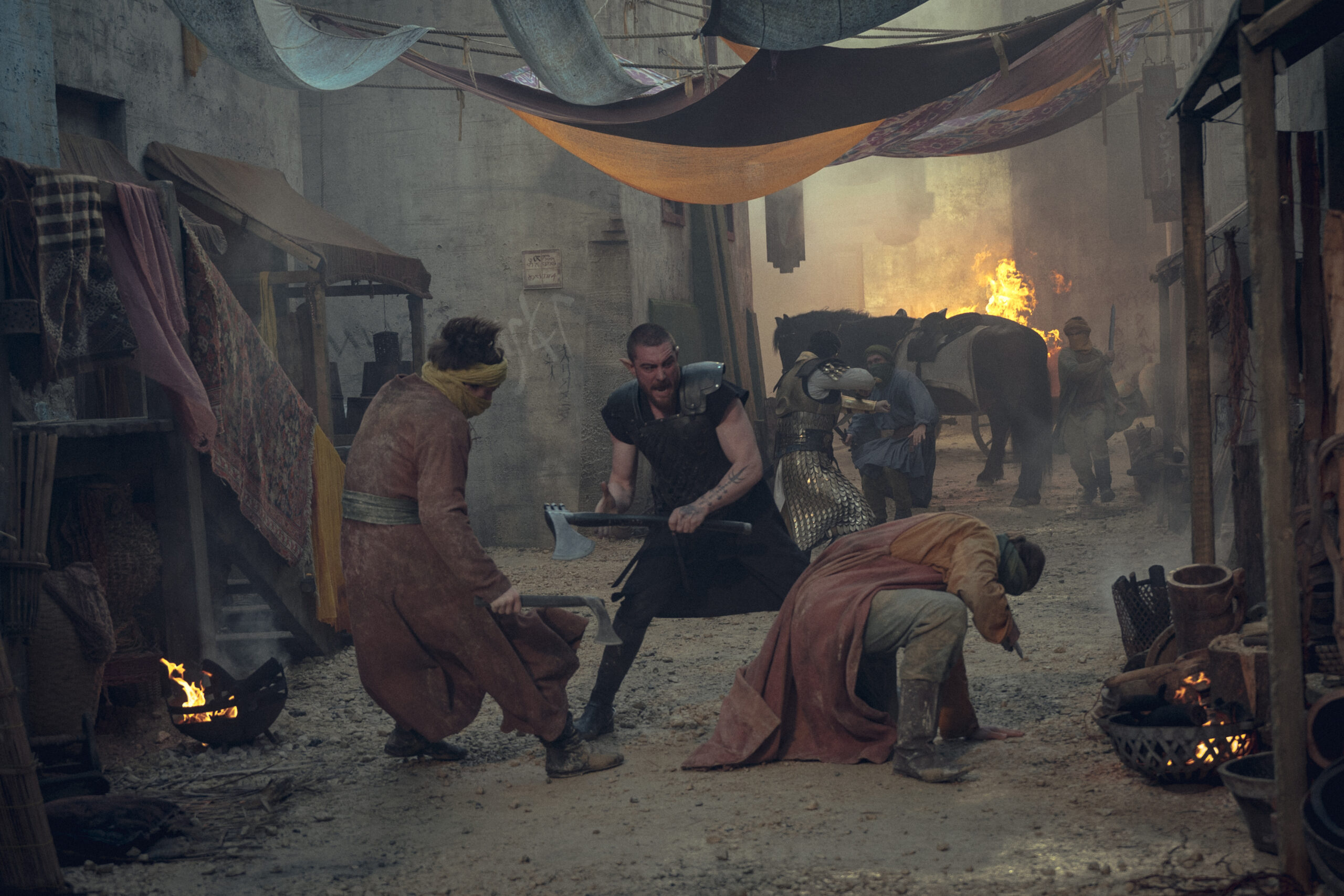
Laurence O’Fuarain as Fjall in The Witcher: Blood Origin (2022) via Netflix
With Hissrich’s reference to Éile carrying said seed, this means that rather than Ciri’s first recorded ancestors being the elves Shiadhal and King Auberon, they will instead be the Netflix original character and her eventual consort.
It should be noted that while, as admitted by Sapkowski, “skin color isn’t discussed in detail in my books, so the adaptors can freely show their craft, everything is possible and everything is allowed, that’s how it could’ve been, after all,” Brown’s black Elf is a significant deviation from how the fantasy peoples have been historically depicted.
Though they are not blanket described in the original books, as seen in such mediums as CD PROJEKT RED’s aforementioned video game trilogy and the official artwork for the series’ Gwent TCG spin-off, the elves in The Witcher have typically been depicted as pale-skinned and having extremely light-colored hair.
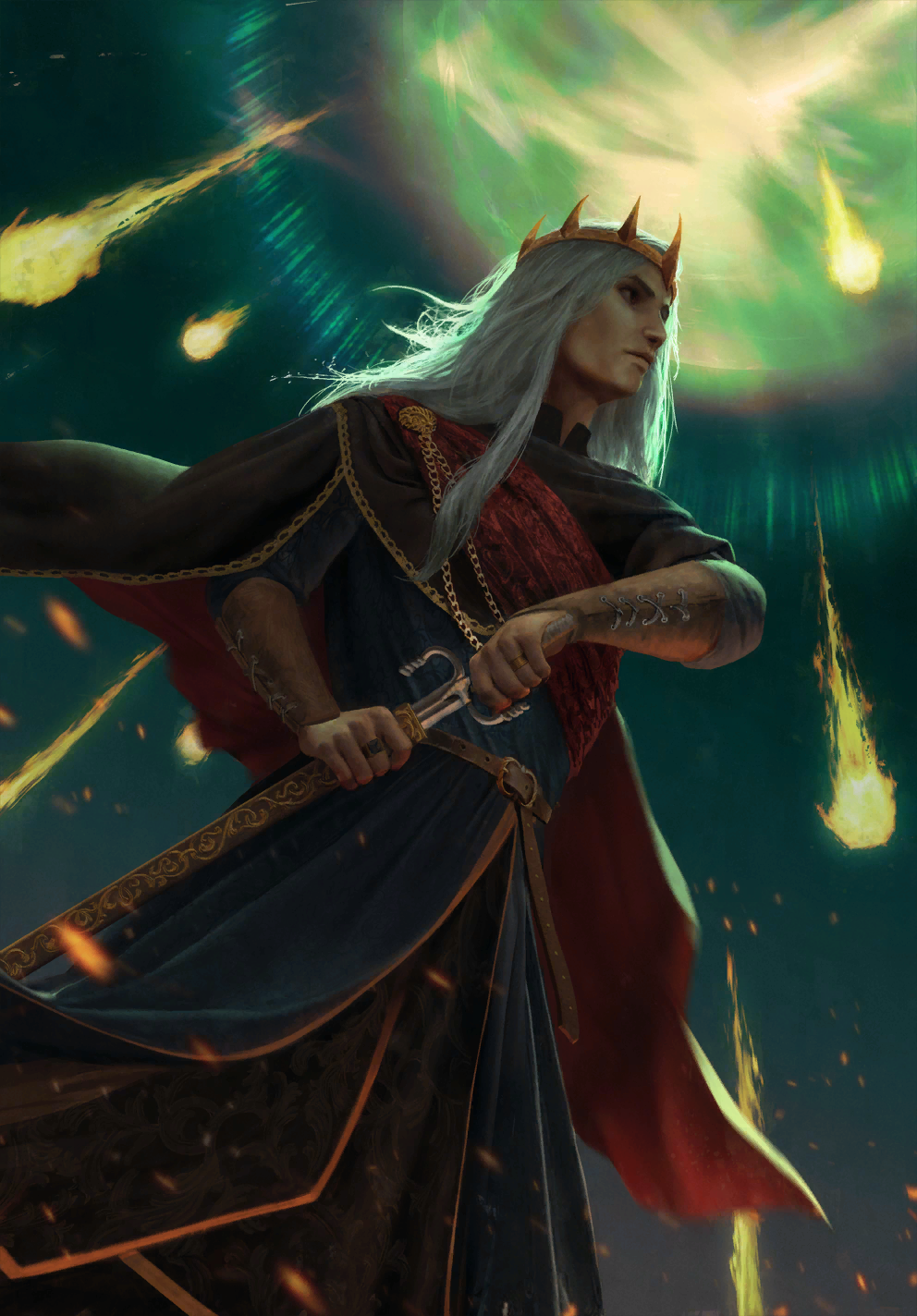
Auberon King, as illustrated by Aleksandra Wojtas for The Witcher card game, Gwent
The Witcher: Blood Origin is currently set to hit Netflix on Christmas Day.
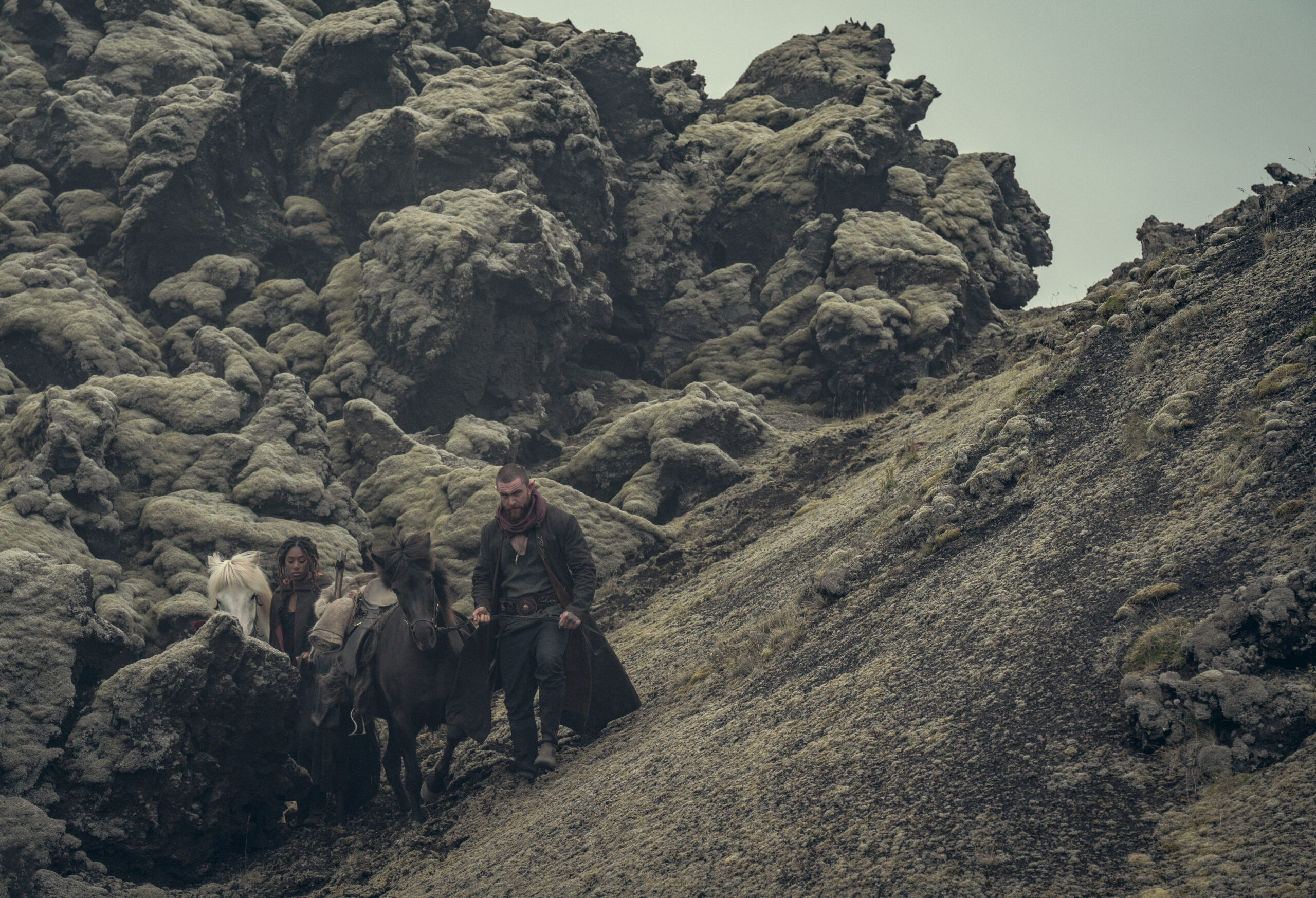
Sophia Brown as Éile and Laurence O’Fuarain as Fjall in The Witcher: Blood Origin (2022) via Netflix
More About:Television
